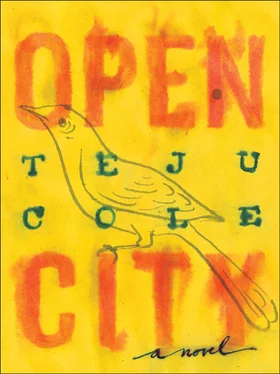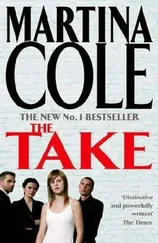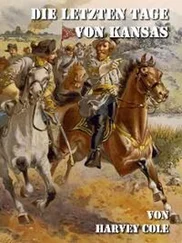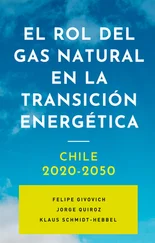When I got home, still not remembering the number for my ATM card, I refused to check the bank documents. I assured myself the number would return in its own time. Then I forgot all about the incident. The next day, Citibank called to tell me they had noticed a dozen failed attempts to withdraw money from my account. I was jovial with the clerk, and assured her that it was my encroaching senility that was responsible, not a thief; my card was fine, they needn’t worry. But when I got off the phone I sat on my bed in the silence of my apartment. I had forgotten about the incident, but then it had become fresh again, and this time more heavily, and this time without witnesses or an official record. The strange feeling was harder to dispel, the memory of standing alone, standing in Wall Street, my memory gone, a pathetic old-young man padding about in the grip of some nervousness, while all around me the smart set made deals, talked on cellphones, and adjusted their cuff links. I recalled having seen a police officer from whose holster an automatic shone, and how I’d been taken with an odd sort of envy of that weapon, of its total lack of ambiguity, of its promise of danger. I imagined I had forgotten not just that number but all numbers, as well as all names, and why I was even there on Wall Street in the first place. I got up from the bed and checked the oven.
Later that day, it snowed, the first snowfall I had witnessed in the season. A furious sense of imbalance came over me as I watched the flakes tumble down and disappear on contact with the ground. Almost a full week afterward, when the cold front had retreated once again into the shadows of our unwintry winter, I still hadn’t remembered the four-digit code. I finally looked it up among my documents, and recaptured what had been hovering, for no good reason, just out of reach.
We’ve had a rough time of it, Dr. Saito said, welcoming me in. I’ve been sleeping here in the living room, on this pallet. We’ve had an infestation of bedbugs. Red coats they used to be called in this part of the country, do you know that name? We thought the exterminators had cleared it up, but it came back worse eight days later, and I’ve had to make an unpleasant choice between this room, with its noisy vents, and being eaten up by the little creatures. He gestured toward the slats above the window. They bite. Like this, one, two, three; breakfast, lunch, and dinner, along your arm; but I’m afraid I haven’t much blood to spare anymore. Then he folded his hands and said he expected the exterminators to return in a few days.
But my spirits are up, so you’ve come at an excellent time. I was out earlier today to see the Chamber Music Society at Lincoln Center. They performed one of the Bach cantatas, the one about coffee. Do you know it? It was so well played that it seemed like a newly made work. It’s about a father fretting over his daughter’s choices. So at least we know nothing has changed through the centuries. Coffee was quite new then, and the elders were skeptical of this drug, and even more skeptical of the enthusiasm young people had for it. They would have been surprised to see how common it is now. And, I’ll tell you, while I was sitting in the concert hall, it struck me that this was exactly like the problem with marijuana today. Coffee, coffee, the young woman sang, I simply must have coffee. Three times a day, or I will shrivel up!
I sat in an armless chair facing Professor Saito. It was good to see him vigorous, amused. It made me happy. His hands were coarsely veined, thin, and cold, and with both my hands I reached out and held both of his and massaged them. In the yellow-gray winter’s light of his apartment, in the deep winter of his own life, this reaching out seemed the most natural thing to do. I’m sorry I’ve been away so long, I said, I’ve had a lot of work to do. He asked if I had just returned from Europe. No, I said, I came back in the middle of January, and I’ve had you on my mind since then. But the rotations have been unusually demanding. You’ll see more of me in the next few months, now that things are stable again.
It’s so noisy, and I think we can lower the heat now, if that is fine by you. He called out for the nurse-aide. Do you think we could lower the heat, Mary? Actually, I think we should turn it off for now, he said, adjusting the blanket around his knees. It has gotten very dry again, the heat makes it so dry in here. Whatever you’d like, she said. She seemed to have gained a lot of weight in the months since I had last seen her. But then I realized she was expecting a child, and was starting to show. I wouldn’t have thought her young enough, as I had put her age somewhere north of forty. But the upper limits are perpetually shifting. A baby at forty is no great rarity anymore, and even fifty is not unheard of. I caught her eye, inclined my head in a gesture at her belly, and smiled. She smiled in return.
Mary, did the Sunday paper come in? Oh yes, good, maybe Julius would like to read to an old man? I told him I would be delighted to do so, and walked over to the dining table, where the paper sat on a pile of others. The apartment was dense with its various collections: the endless variety of South Seas masks on the walls, some of them in darkly polished wood, others brightly painted, the several months’ worth of daily newspapers stacked on the table and near the door, the overstuffed bookshelves, from which hundreds of volumes called out for attention, the little figurines and puppets crammed on the desk facing the entryway. All that was missing, it occurred to me, were photographs: of family members, of friends, of Professor Saito himself.
I read the headlines from the Times , and the first two paragraphs of each story on the front page. Most of them were about the war. I looked up from the paper and said, It’s almost too much to think about, all the intended and unintended consequences of this invasion. I think it’s a terrible mess, and I can’t stop thinking about it. Yes, Professor Saito said, but I felt that way about a different war. In 1950, we were deeply worried about the Korean situation. It was an endless tension, one that we never really believed would go away. So many people were called up into the military and, really, it wasn’t so long after World War II. There were doubts about how far it would go, how long the stalemate would continue, who else would get involved. There was an unspoken nuclear fear, and that worsened, you see, when China entered the war. That unspoken fear became spoken. We Americans started wondering whether to use nuclear weapons again. But the war ended, as all wars eventually end; it exhausted itself. By the time Vietnam came around, it was a different pressure, at least for those of us who had been psychologically invested in Korea. Vietnam was a mental battle for the young, for the generation after ours. You go through that experience only once, the experience of how futile a war can be. You latch on to all the names of the towns, all the news. It didn’t happen to me in World War II, that was a different experience, much more isolated, much more difficult. But as a free man in 1950, as a part of the campus scene, I experienced Korea more intensely. By the mid-sixties, the confusion of war was no longer a novelty for me. And now with this war, it’s a mental battle for a different generation, your generation. There are towns whose names evoke a real horror in you because you have learned to link those names with atrocities, but, for the generation that follows yours, those names will mean nothing; forgetting doesn’t take long. Fallujah will be as meaningless to them as Daejeon is to you. But look, I’ve veered off from the subject at hand, as I usually do. Bach really got my blood flowing, I think. Forgive my ramblings. Why don’t you read me the rest of the headlines?
Читать дальше












